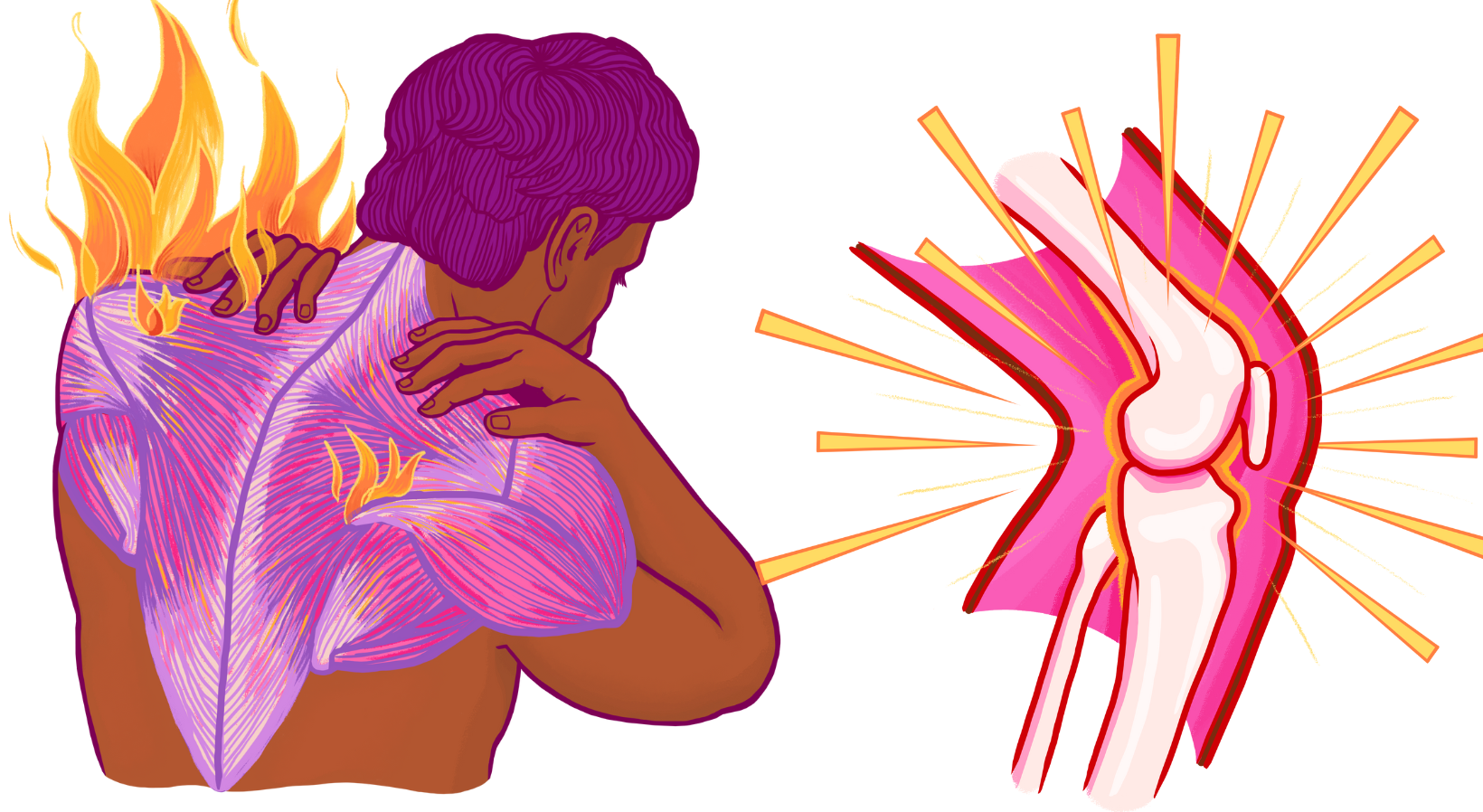Chronic Pain

What is Chronic Pain?
Chronic pain is a condition characterized by persistent or recurrent pain that lasts for longer than three months.
Who’s at risk for Chronic Pain?
Chronic pain can affect anyone, but it is more common in individuals with a history of injury, surgery, or other medical conditions that can lead to chronic pain. Other risk factors may include age, genetics, and lifestyle factors, such as smoking and physical inactivity.
What causes Chronic Pain?
Chronic pain can be caused by a variety of factors, including injury, surgery, nerve damage, and medical conditions, such as arthritis or fibromyalgia. In some cases, the exact cause of chronic pain may be unknown.
How does Chronic Pain start?
Chronic pain may develop slowly over time, or it may be the result of an acute injury or medical condition that leads to persistent or recurrent pain.
What are the symptoms of Chronic Pain?
The symptoms of chronic pain can vary widely from person to person, but common symptoms may include:
- Persistent or recurrent pain that lasts for longer than three months
- Pain that is sharp, dull, or burning
- Pain that is localized or widespread
- Fatigue
- Sleep disturbances
- Mood changes, such as anxiety or depression
- Decreased mobility and flexibility
How is Chronic Pain diagnosed?
Chronic pain is diagnosed based on the presence of characteristic symptoms and a comprehensive medical history and physical examination. Other tests, such as imaging or nerve conduction tests, may also be performed to rule out other medical conditions.
How can Chronic Pain be treated?
Treatment for chronic pain depends on the underlying cause and may involve a combination of medication, therapy, and lifestyle changes. Medications, such as pain relievers and anti-inflammatory drugs, may be used to manage symptoms, while therapy, such as physical therapy and cognitive-behavioral therapy, can help improve function and reduce pain. Lifestyle changes, such as maintaining a healthy diet and getting regular exercise, can also help manage symptoms and improve quality of life.
What complications may occur with Chronic Pain?
Untreated chronic pain can significantly impact a person's quality of life, leading to social isolation, depression, and other mental health issues. The condition may also interfere with work and other daily activities.
How can I prevent Chronic Pain?
Preventing chronic pain involves managing underlying medical conditions, such as arthritis or fibromyalgia, that can lead to chronic pain. Other preventative measures may include maintaining a healthy lifestyle, avoiding injury, and managing stress.
Long-term management of Chronic Pain
Long-term management of chronic pain involves ongoing monitoring of symptoms and regular follow-up with healthcare professionals. It is important to work closely with healthcare professionals to develop an individualized treatment plan that addresses the specific needs of the person with chronic pain.
What is recent research saying about Chronic Pain?
Recent research has focused on identifying potential new treatments for chronic pain, as well as exploring the role of genetics and environmental factors in the development of the condition. There is also ongoing research into the effectiveness of different types of therapy for managing symptoms of chronic pain.
Where can I go for more information on Chronic Pain?
The American Chronic Pain Association and the National Institute of Neurological Disorders and Stroke provide up-to-date information on chronic pain, including diagnostic criteria, treatment options, and ongoing research.

